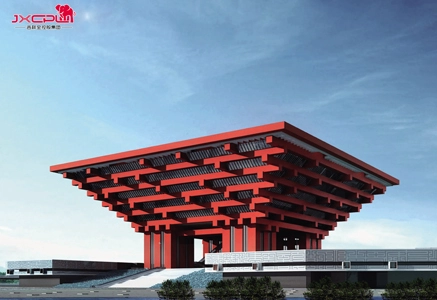EN
When it comes to mesh panels used for fencing, filtration, security, or architectural purposes, two popular materials dominate the market: steel mesh and aluminum mesh. While both offer versatility and functionality, they're not created equal.
So, what exactly sets steel mesh apart from aluminum mesh panels?
Let's explore the key differences to help you make the right decision for your next project.
A steel mesh panel is made from carbon steel, stainless steel, or galvanized steel wires that are woven or welded into a mesh structure. These panels are known for their:
High strength
Heavy-duty performance
Long-term durability
They come in different forms, such as:
Welded wire mesh (for fences, cages)
Woven wire mesh (for screens, filters)
Expanded metal mesh (for walkways, security panels)
Steel mesh is typically coated with:
Galvanization (zinc coating for corrosion resistance)
Powder coating (for color and weather protection)

An aluminum mesh panel is made using pure or alloyed aluminum, shaped into a mesh pattern through punching, weaving, or expansion techniques. These panels are prized for their:
Lightweight nature
Corrosion resistance
Modern aesthetic appeal
Aluminum mesh panels are often used in:
Architectural facades
Ventilation grilles
Sunshades and decorative panels
Filtration and screening
They are also available with various surface finishes like:
Anodizing
Powder coating
Mill finish

Let's compare these two materials based on performance, cost, and usage.
Steel Mesh: Extremely strong and impact-resistant; suitable for load-bearing and high-security applications.
Aluminum Mesh: Strong enough for light to moderate use, but less impact-resistant.
Winner: Steel Mesh – Ideal for heavy-duty applications.
Steel Mesh: Much heavier, which can increase shipping and installation costs.
Aluminum Mesh: Significantly lighter, easier to transport and install.
Winner: Aluminum Mesh – Perfect for lightweight construction or temporary setups.
Steel Mesh: Requires galvanization or coating to resist rust; stainless steel offers better corrosion protection but is costly.
Aluminum Mesh: Naturally corrosion-resistant; doesn't rust even without coating.
Winner: Aluminum Mesh – Best choice for coastal, humid, or outdoor environments.
Steel Mesh: Functional and industrial-looking; limited design flexibility.
Aluminum Mesh: Modern and stylish; easy to form into decorative shapes.
Winner: Aluminum Mesh – Favored for aesthetic and architectural applications.
Steel Mesh: Generally less expensive (especially carbon steel), but costs rise with stainless steel or custom coatings.
Aluminum Mesh: Higher material cost, but lower maintenance and longer life in outdoor settings.
Winner: Depends on use – Steel is cheaper upfront, aluminum may save on maintenance.
Both steel and aluminum are non-combustible, but steel has a higher melting point, making it more suitable for fire-prone environments.
Winner: Steel Mesh – Slight edge for fire safety.
Steel Mesh: Harder to cut and shape; requires special tools.
Aluminum Mesh: Easier to cut, bend, and install with basic tools.
Winner: Aluminum Mesh – More user-friendly for DIY or light construction.
| Feature | Steel Mesh Panel | Aluminum Mesh Panel |
Strength | ★★★★★ | ★★★☆☆ |
Weight | Heavy | Lightweight |
Corrosion Resistance | Moderate to High (depends on type) | Excellent |
Appearance | Industrial | Modern / Sleek |
Cost | Lower (carbon steel) / Higher (stainless steel) | Higher upfront |
Design Flexibility | Limited | High |
Ease of Fabrication | Harder | Easier |
Best Use Cases | Security, heavy-duty fencing, walkways | Facades, sunshades, decorative panels |
Security fencing for prisons, airports, and factories
Reinforcement in concrete
Machine guards and safety enclosures
Heavy-duty animal enclosures
Grating and walkways in industrial zones
Architectural facades and cladding
Decorative interior partitions
HVAC grilles and ventilation panels
Insect screens
Lightweight fencing or balcony railings
It depends on your project requirements:
Choose steel mesh if you need:
High strength and durability
Impact or load resistance
Cost-effective fencing or industrial use
Choose aluminum mesh if you need:
Lightweight, corrosion-resistant material
Aesthetic appeal and design flexibility
Easy-to-install decorative or architectural applications
Both steel mesh and aluminum mesh panels are valuable materials with specific strengths. Steel offers power and performance, while aluminum delivers style and resilience.
Choosing the right one depends on whether you value strength or aesthetics, cost or corrosion resistance, and the nature of your application—whether industrial or decorative.


